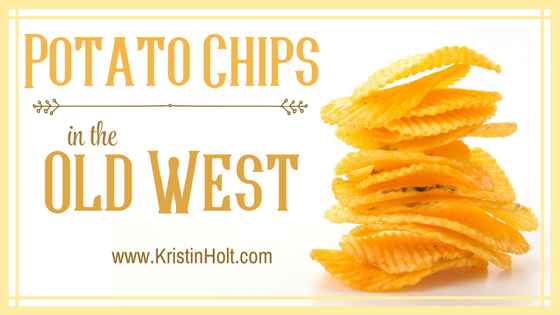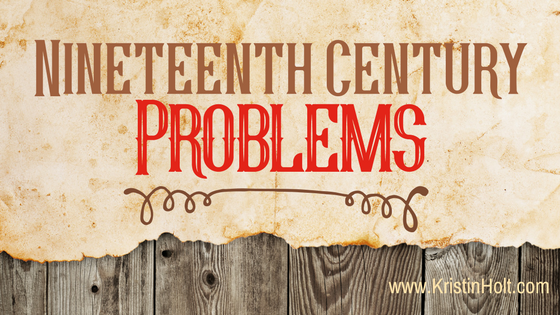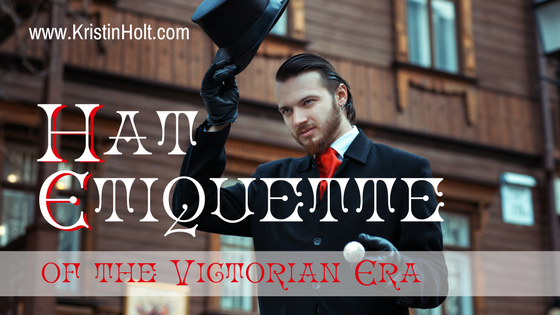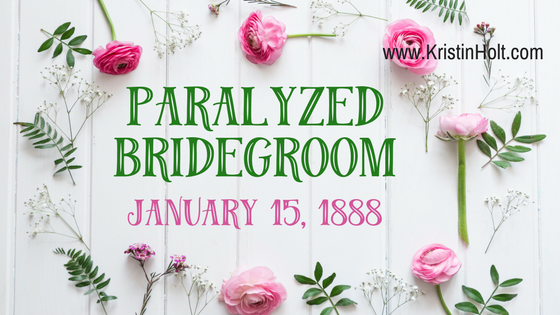
by Kristin Holt | May 7, 2017 | Articles
Dr. Richardson, a London physician, spoke against corsets (tight lacing) and the damage thereby inflicted upon women’s intellect. This article was syndicated from New York Times and appeared in Kansas Farmer on May 5, 1880.

by Kristin Holt | May 4, 2017 | Articles
Potato Chips are an American (and world-wide) favorite. Invented by accident–or should we say “accidentally-on-purpose”?–these potato crisps first graced the table of an elite resort in 1853 in upstate New York. News of the “invention” spread far and fast, and quickly became part of every homemaker’s repertoire, available on grocer’s shelves, served in restaurants, peddled by salesmen, and inspired further inventions.

by Kristin Holt | Apr 28, 2017 | Articles
An 1865 newspaper article persuades all young people to tell the truth in courtship, and attempts to convince all readers of the stark benefits, compared to disastrous tragedies, when his advice is ignored. A powerful view into Victorian history and attitudes about courtship and marriage.

by Kristin Holt | Apr 23, 2017 | Articles
World Book (and Copyright) Day is relatively new (about 20 years old) and celebrates books, literature, authors, writing–and most importantly, READING, worldwide. Because of loose literary connections in history, April 23rd, each year, is the official day. What will you do to take note of this holiday?
Save

by Kristin Holt | Apr 18, 2017 | Articles
111 years ago today, April 18, 1906, an earthquake with a magnitude (estimated) of 7.8 destroyed much of San Francisco. Charles River Editors did a fine job covering this tremendous natural disaster in a brief, concise, instructive manner. See my five-star review.

by Kristin Holt | Apr 10, 2017 | Articles
“Nineteenth Century Problems” is a bit of poking fun at today’s “First World Problems” tongue-in-cheek humor…the challenges we face today because we have a life of ease. I came across the Nineteenth Century practice of allowing barnyard animals free run of the surrounding neighborhood–not a problem until their presence (and eating habits, and messes)–became an inconvenience of that growing town. Read vintage newspaper clippings about this challenge and the dangers it posed, along with a separate, serious threat of the late Nineteenth Century; now that’s a serious problem!

by Kristin Holt | Apr 8, 2017 | Articles
Introducing Donna Fasano’s new release: Made In Paradise–a sweet contemporary romance focused on family, second chances, and the bonds of love for one special little girl.

by Kristin Holt | Apr 5, 2017 | Articles
Etiquette governed much during the Victorian Era: courtship, marriage, mourning, letters, social calls, dancing, engagements and breaking of engagements, clothing…and men’s hats. When reading fiction and nonfiction alike, I’ve wondered about men tipping their hats to ladies, removing their hats (or not), giving their hats over to the butler (or not), wearing a Stetson inside or during a business meeting… What did good manners demand? How did a cowboy show respect? How did a lady know if a man hoped to stay awhile when he paid a call?

by Kristin Holt | Apr 2, 2017 | Articles
PARALYZED BRIDEGROOM: A vintage newspaper article published on January 15, 1888 in The Sunday Leader of Wilkes-Barre, Pennsylvania, shows the superstitious nature of one (Kentucky) widower…and a very odd set of circumstances. Note that the article takes care to explain both the effected bridegroom and the new bride are frugal, hard-working, well-respected people of common sense. Amazing what a bit of folklore, threats from a dying first wife, and “the power of suggestion” can do.

by Kristin Holt | Mar 30, 2017 | Articles
A vintage newspaper article (123 years old), dated April 6, 1894, was published in a Hamburg, New York newspaper (The Sun and the Erie County Independent). Titled HOW TO ATTRACT MEN, the brief advice encapsulates the late Victorian-era’s social expectations for men and women–and sheds light on the etiquette of courtship…or how a woman might properly persuade a man to notice her (so a courtship might commence).


















